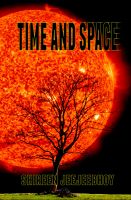How to Research Your Story Before Writing Your Book
by Shireen Jeejeebhoy
My first book was a medical biography, and research was the foundation for writing Lifeliner — a lot of research. But even my fiction books required me to conduct some research. What kind of research I needed to do depended on the book and my own current knowledge.
For Lifeliner, I began by talking to my subject’s husband. Judy Taylor — the subject of the book — had just died, and so talking to her husband Cliff was the next best thing. I wanted to get to know the bones of her whole story, and Cliff didn’t hold back. Many others I needed to interview were just as forthcoming, but some were reticent and had to be cajoled and encouraged to answer in more than one or two words.
Interviewing people is demanding work. Before you can begin though, you’ll have to figure out who to interview. Oftentimes, I found potential interviewees through recommendations from people I’d previously interviewed, or I’d ask around. Once you have names, you must first ask politely if they would be willing to talk to you. Then, you spend a little bit of time finding out in what way they can add to your story or your background knowledge. After that, you draw up a list of questions. And last, you do the interview, by phone or in person, during which half your questions will be tossed and you’ll busily add new questions based on their answers.
Research is easier now with the Internet. Instead of schlepping to the library, you can begin reading up on a subject using Wikipedia. For Time and Space, I also read ebooks on theoretical physics and feature articles in science magazines on time travel or relativity. I kept an eye out for news on neutrinos and the speed of light. It helps to talk over what you’ve learnt with people familiar with the subject area. That cements your new knowledge in your head.
Keep track of articles you read on the Internet. I found I’d find something good then forget to bookmark the hyperlink and end up spending too much time trying to find it again, especially when it came time to put it in the ebook, as for my second non-fiction book Concussion Is Brain Injury.
ProjectGutenberg is a good place to find ebooks in the public domain on a whole host of topics. For my current work in progress, I needed a source for poetry. Gutenberg provided, and I downloaded poetry books from the 19th century into iBooks. Handy. iBooks allows me to highlight and write notes in these ebooks, like one can do in print books.
As you go through all your research materials, find a central place to keep notes. But if you have a lot of research, you may want to set up physical files as I did for Lifeliner. I had files for interviews, correspondence, medical notes, personal papers, images, and so on. Organization equals successful use of research.
Buy Now @ Amazon & Smashwords & Kobo
Genre – Science Fiction / Time Travel
Rating – PG13
More details about the author & the book
Connect with Shireen Jeejeebhoy on Facebook & Twitter
Website http://jeejeebhoy.ca/







0 comments:
Post a Comment